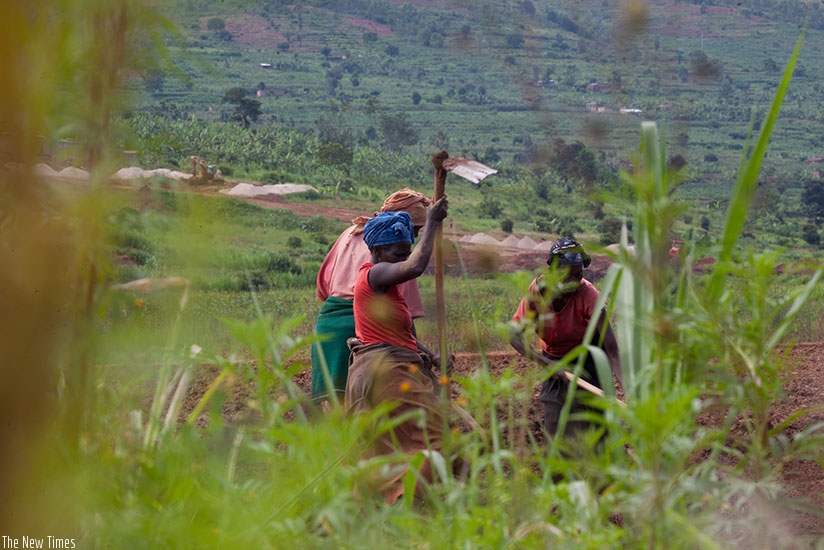Researchers at Rwanda Agriculture Board (RAB) say there is need for more efficient use of the ecosystem (agriculture, land and water) to reduce depleting soil nutrients that can adversely affect food security.


Researchers at Rwanda Agriculture Board (RAB) say there is need for more efficient use of the ecosystem (agriculture, land and water) to reduce depleting soil nutrients that can adversely affect food security.
The recommendation was made at a stakeholders’ validation meeting to discuss research findings from Water, Land, Ecosystems and Trade in Staples (WALETS) project aimed at enhancing the linkage between ecosystems management and food security in member states of the East African Community (EAC).
The validation meeting took place in Kigali on Tuesday.
Leonidas Dusengemungu, a senior researcher at RAB, said lack of sustainable ecosystems practices during intensification of agriculture leads to economic loss of $34.3 million annually in Rwanda because soil nutrients are depleted through erosion, agricultural malpractices, which in turn, affect food and nutrition security.
The two-year research project was conducted by RAB in conjunction with Kilimo Trust, a regional organisation that specialises in agriculture for development.
The study also states that the ecosystems are also endangered by excessive water use, decline and degradation of biodiversity, overuse and inefficient use of fertilisers and pesticides.
"This ecosystem is used for food production and inefficient agriculture practices could affect food security,” Dusengemungu added.
The research findings also show that in EAC, there is an absence of valuing ecosystems services to guide production of food staples while their policies face weak enforcement of rights of women and other marginalised groups in accessing land, trade in food staples and ecosystems management.
The study recommends that a farmer must get better prices for their produce as motivation for eco-friendly farming practices. In pricing food, various efforts such as investment, labour, ecosystem management and rehabilitation efforts, should be put into consideration.
"We need to establish suitable zones of production of various crops in which crop and ecosystems match, adopt appropriate ecosystems management practices for sustainable land and water resources use and ultimately improve security,” the recommendations read.
Andrew Gashayija, a researcher from Kilimo Trust, added that settlement and urbanisation policies should consider the issue of arable land reduction if food insecurity was to be considered.
The challenges cited in ecosystems use include; farmer’s skills and attitude that are still low, land consolidation not yet fully embraced, low prices for agricultural produce, gender disparity issues in ecosystems management and in staples food trade.
The Head of Research Department at RAB, Dr Patrick Karangwa, said the study will help complement other efforts in using fertilisers, reduce pesticides hazards, soil erosion, combating climate effects, among others.
"The findings will guide and advise policy geared toward increasing agricultural productivity and building resilient landscapes,” Karangwa said.
editorial@newtimes.co.rw


